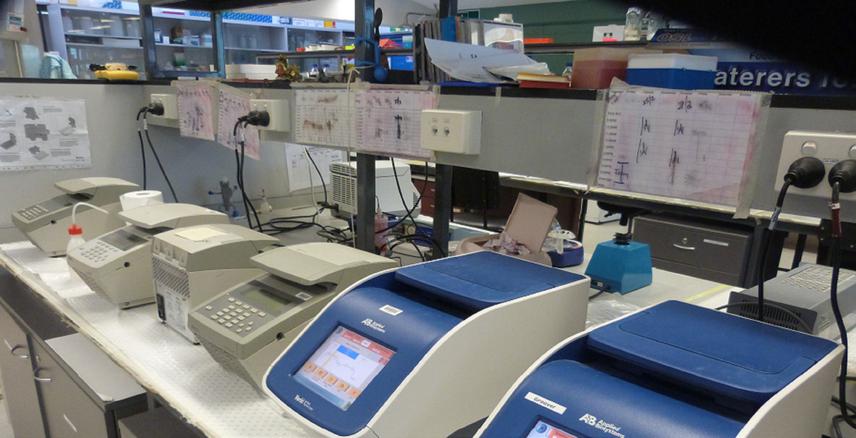Haile Yineger Tariku
Other projects
22 Dec 2011
Habitat Fragmentation in NW Ethiopia: Effects on Population Connectivity of an Endangered Medicinal Tree Species, Prunus africana
The aim of this project is to understand the consequences of habitat loss and fragmentation on pollen dispersal of the endangered medicinal tree, Prunus africana (Hook.f.) Kalkman (Rosaceae).

Habitat loss and fragmentation explicitly affect the composition, assemblage, behaviour and viability of pollinator communities in fragmented landscapes. This may negatively affect pollen dispersal mutualisms and cause significant limitations on the processes of pollen dispersal in human-modified landscapes.
Such fragmentation driven pollen dispersal limitations possibly cause significant constraints in the subsequent stages of plant recruitment, thus gradually resulting in small population size of plants. Small plant populations may possibly face genetic erosion due to random genetic drift and increased levels of inbreeding and ultimately may go locally extinct when a certain threshold value of patch size and isolation is reached. However, the influence of forest fragmentation on pollen-mediated gene flow remains virtually unexplored in many Afro-tropical regions such as Ethiopia. Our recent study on genetic effects of fragmentation on Prunus africana populations (Yineger et al., in review) showed that remnant populations were genetically isolated even prior to or during early stages of fragmentation perhaps as a result of potential limitations in either seed or pollen-mediated gene flow.
In this project, we attempt to understand whether habitat fragmentation is affecting pollen dispersal among remnant P. africana populations in human dominated landscapes of NW Ethiopia. Anticipated results of this study will contribute to the wider understanding of fragmentation effects on population connectivity of this endangered medicinal tree species. Proper comprehension of fragmentation impacts on connectivity among the remnant populations of the species in turn may help to devise appropriate management and restoration options.
The field data for this project has already been collected in 2012 from fragmented landscapes of Guangua Wereda, Gojjam, NW Ethiopia. Genetic material export and import permits were obtained in 2012. We will use polymorphic nuclear microsatellite DNA markers and relevant approaches to understand fragmentation effects on pollen-mediated gene flow of P. africana populations.